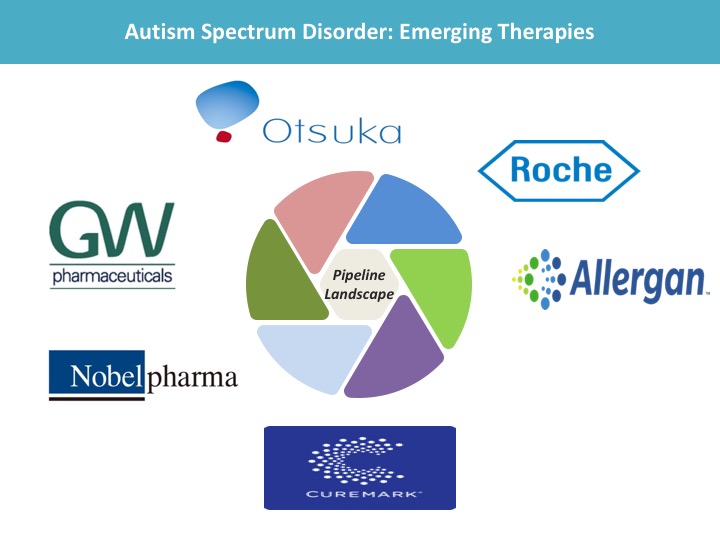Autism Spectrum Disorder (ASD) is a developmental disability that can cause significant social, communication, and behavioral challenges. People with ASD may communicate, interact, behave, and learn in ways that are different from most other people. The learning, thinking, and problem-solving abilities of people with ASD can range from gifted to severely challenged. They might repeat certain behaviors and might not want to change in their daily activities. Many people with ASD also have different ways of learning, paying attention, or reacting to things. A diagnosis of ASD now includes several conditions that used to be diagnosed separately i.e., autistic disorder, pervasive developmental disorder not otherwise specified (PDD-NOS), and Asperger syndrome. These conditions are now knowns as an autism spectrum disorder.
According to the U.S. Centers for Disease Control and Prevention (CDC) approximately, 1 in 68 children in the United States have been diagnosed with Autism. Autism is the third most common developmental disability. According to one of the epidemiological studies by “Action for Autism”, the prevalence rate is 1.7 million (estimated rate of 1 in 250 children). It is most frequent among the boys in comparison to the girls.
There is currently no approved drug on the market that treats the core symptoms of Autism. Hence, there are various pharmaceutical companies have the potential to transform the existing market by developing robust pioneering pipeline clinical programs to treat Autism spectrum disorder. Several companies such as Otsuka Pharmaceutical, Nobelpharma, GW Research Ltd, Hoffmann-La Roche, Allergan & Curemark are developing novel therapies.
Otsuka Pharmaceutical (Brexpiprazole)
Brexpiprazole is a molecule discovered by Otsuka and co-developed by Otsuka and Lundbeck. The efficacy of brexpiprazole may be mediated through a combination of partial agonist activity at serotonin 5-HT1A and dopamine D2 receptors, and antagonist activity at serotonin 5-HT2A receptors. Brexpiprazole exhibits high affinity (subnanomolar) for these receptors as well as for noradrenaline alpha1B/2C receptors.
Brexpiprazole, is currently study under the clinical trial of Phase III. The purpose of this study is to find out about the potential benefits and safety of brexpiprazole in children and adolescent subjects, aged 5 to 17, with irritability associated with autism spectrum disorder.
GW Research Ltd (GWP42006/CBDV)
GWP42006 is the non-psychoactive cannabinoid cannabidivarin (CBDV) extracted from the cannabis plant. It has been evaluating GWP42006 in both general and syndromic pre-clinical models of ASD yielding promising signals on cognitive and social endpoints as well as repetitive behavior. These include both genetically determined abnormalities of neurobehavioral and chemically-induced models. A Phase IIa proof of concept study of a pipeline compound GWP42006 is being evaluated to treat ASD.
Hoffmann-La Roche (Balovaptan)
Balovaptan (RG7314) is a potent and specific small molecule antagonist of the V1A vasopressin receptor, which is implicated in modulating emotional processing and key social deficits exhibited in patients with Autism Spectrum Disorders. A phase III clinical trial is evaluating balovaptan for the treatment of patients with autism spectrum disorder.
Hoffmann-La Roche (RG7816)
RG7816 is a small molecule highly selective positive allosteric modulator of the GABAA α5 receptor, which is expressed in key brain regions for autism spectrum disorder.
Allergan (Cariprazine)
Cariprazine has a high affinity for Dopamine D3 receptors acting as a partial agonist at D3 receptors. Cariprazine is primarily metabolized by CYP3A4 into Desmethyl Cariprazine (DCAR) and DCAR is then further metabolized by CYP3A4 into Didesmethyl Cariprazine (DDCAR). Cariprazine, is evaluated under the clinical study of Phase-I. This study would be a multi-center, open-label, parallel-group, multiple-dose study in up to 24 male and female participants aged 5 through 17 years, inclusive, with Autism Spectrum Disorder (ASD)
Curemark (CM-AT)
CM-AT, is lead drug candidate, is designed to enhance protein digestion thereby potentially restoring the pool of essential amino acids. Essential amino acids play a critical role in the expression of several genes important to neurological function and serve as precursors to key neurotransmitters such as serotonin and dopamine.CM-AT has completed enrollment in The Blüm Study, a Phase III clinical trial for CM-AT in children aged 3-8 years old. CM-AT has received Fast Track Designation from the U.S. Food and Drug Administration (FDA). FDA has also granted Curemark a rolling review of its New Drug Application for CM-AT.
Autism Spectrum Disorder (ASD) Pipeline Landscape
| Company Name | Product Name | Stage of Development | Mechanism of Action | Route of Administration |
| Otsuka Pharmaceutical | Brexpiprazole/OPC-34712/ LuAF41156 | Phase III | Dopamine D2 Receptor Partial agonists; Serotonin 1A Receptor Partial Agonists | Oral |
| Nobelpharma | NPC-15 Granules | Phase II/III | _ | oral |
| GW Research Ltd | GWP42006/ CBDV | Phase II | Cannabinoid Receptor Modulators | Oral |
| Hoffmann-La Roche | Balovaptan/RO5285119/RO7017773 | Phase III | Antagonist of the V1A Vasopressin Receptor | Oral |
| Hoffmann-La Roche | RG7816 | Phase I | – | _ |
| Allergan | Cariprazine | Phase I | CYP3A4 Inhibitor | Oral |
| Curemark | CM-AT | Phase III | Enzyme Modulators | Oral |

